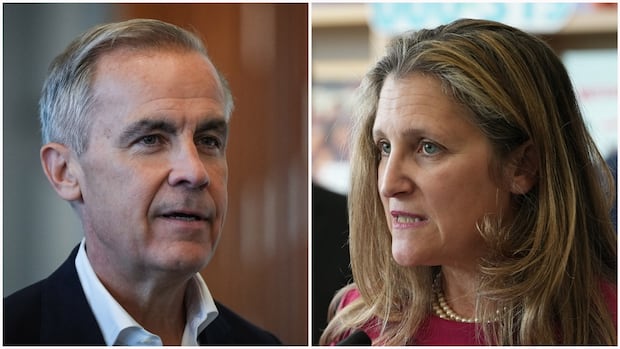Historic Tariff Fight: Liberal Front-Runners' Retaliation Plans Unveiled

Historic Tariff Fight: Liberal Front-Runners' Retaliation Plans Unveiled. Discover more detailed and exciting information on our website. Click the link below to start your adventure: Visit Best Website. Don't miss out!
Table of Contents
Historic Tariff Fight: Liberal Front-Runners' Retaliation Plans Unveiled
The ongoing trade war is escalating, with liberal front-runners unveiling ambitious plans to retaliate against unfair tariffs. This historic tariff fight has sent shockwaves through the global economy, prompting urgent calls for diplomatic solutions. But with election season heating up, the pressure is on these leading candidates to demonstrate their commitment to protecting domestic industries and workers. What specific strategies are they proposing, and what are the potential consequences?
Keywords: tariff fight, trade war, liberal front-runners, retaliation plans, economic policy, international trade, election, import tariffs, export taxes, trade negotiations, global economy, economic sanctions
Candidate A: Focusing on Targeted Retaliation
Candidate A's campaign has released a detailed policy paper outlining a strategy of targeted retaliation. This approach avoids broad, economy-wide measures, instead focusing on specific sectors disproportionately affected by unfair tariffs.
- Key Sectors: The plan prioritizes support for the agricultural sector, promising immediate relief for farmers struggling with reduced export markets. The manufacturing sector also receives significant attention, with proposed tax credits and investment incentives to offset tariff impacts.
- Negotiation Emphasis: A key aspect of Candidate A's plan emphasizes simultaneous negotiation. Retaliatory measures will be implemented strategically, used as leverage to secure fairer trade agreements with key trading partners. This approach avoids escalating the trade war unnecessarily.
- International Alliances: The plan highlights the importance of building strong international alliances to combat unfair trade practices collectively. This includes strengthening ties with existing allies and forging new partnerships to counter the influence of protectionist regimes.
Candidate B: Prioritizing Domestic Investment & Job Creation
Candidate B's response to the tariff fight centers on strengthening the domestic economy. Their platform focuses less on direct retaliation and more on creating a resilient domestic market less vulnerable to external shocks.
- Investment in Infrastructure: A significant portion of the plan involves massive investment in infrastructure projects. This aims to stimulate economic growth, create jobs, and reduce reliance on foreign goods.
- Reshoring Initiatives: Candidate B advocates for aggressive reshoring initiatives, encouraging companies to bring manufacturing jobs back to the country through tax breaks and incentives. This aims to reduce dependence on foreign supply chains.
- Worker Retraining Programs: Recognizing the impact of job losses in affected sectors, the plan includes substantial funding for worker retraining programs, ensuring a smooth transition for workers displaced by trade disputes.
The Potential Impact: Economic Uncertainty and Global Implications
The unfolding tariff fight presents significant challenges. The proposed retaliation plans, while aimed at protecting domestic interests, could trigger further economic uncertainty and potentially escalate the trade war. International cooperation becomes paramount to navigating this crisis and preventing a global recession. The strategies adopted by these liberal front-runners will significantly impact the future direction of trade policy, both domestically and globally.
What's Next? The coming months will be critical as these candidates further refine their plans and engage in public debate. Understanding their approaches to this historic tariff fight is crucial for voters seeking to make informed decisions during the upcoming election. Stay informed and continue to follow our coverage for the latest updates on this critical issue.

Thank you for visiting our website wich cover about Historic Tariff Fight: Liberal Front-Runners' Retaliation Plans Unveiled. We hope the information provided has been useful to you. Feel free to contact us if you have any questions or need further assistance. See you next time and dont miss to bookmark.
Featured Posts
-
 El Potencial De La Terapia Combinada Talquetamab Teclistamab Resultados Y Perspectivas
Jan 23, 2025
El Potencial De La Terapia Combinada Talquetamab Teclistamab Resultados Y Perspectivas
Jan 23, 2025 -
 El Pasado De Alex Ghita Y Adara Molinero Confesiones Inesperadas
Jan 23, 2025
El Pasado De Alex Ghita Y Adara Molinero Confesiones Inesperadas
Jan 23, 2025 -
 1 4
Jan 23, 2025
1 4
Jan 23, 2025 -
 Korban Banjir Batang Bantuan Dan Penanggulangan Bencana
Jan 23, 2025
Korban Banjir Batang Bantuan Dan Penanggulangan Bencana
Jan 23, 2025 -
 Justin Bieber Aclara Por Que Dejo De Seguir A En Redes
Jan 23, 2025
Justin Bieber Aclara Por Que Dejo De Seguir A En Redes
Jan 23, 2025
Latest Posts
-
 Living With Dirtyahip Coping Strategies And Support
Feb 05, 2025
Living With Dirtyahip Coping Strategies And Support
Feb 05, 2025 -
 Rubio Comments On El Salvadors Offer For Us Deportation
Feb 05, 2025
Rubio Comments On El Salvadors Offer For Us Deportation
Feb 05, 2025 -
 Neil Gaimans Legal Troubles Update On The Coraline Authors Case
Feb 05, 2025
Neil Gaimans Legal Troubles Update On The Coraline Authors Case
Feb 05, 2025 -
 Previsions Meteo Temperatures Glaciales Et Neige Annoncees
Feb 05, 2025
Previsions Meteo Temperatures Glaciales Et Neige Annoncees
Feb 05, 2025 -
 Final Destination Bloodlines Trailer A Bloody New Chapter
Feb 05, 2025
Final Destination Bloodlines Trailer A Bloody New Chapter
Feb 05, 2025
